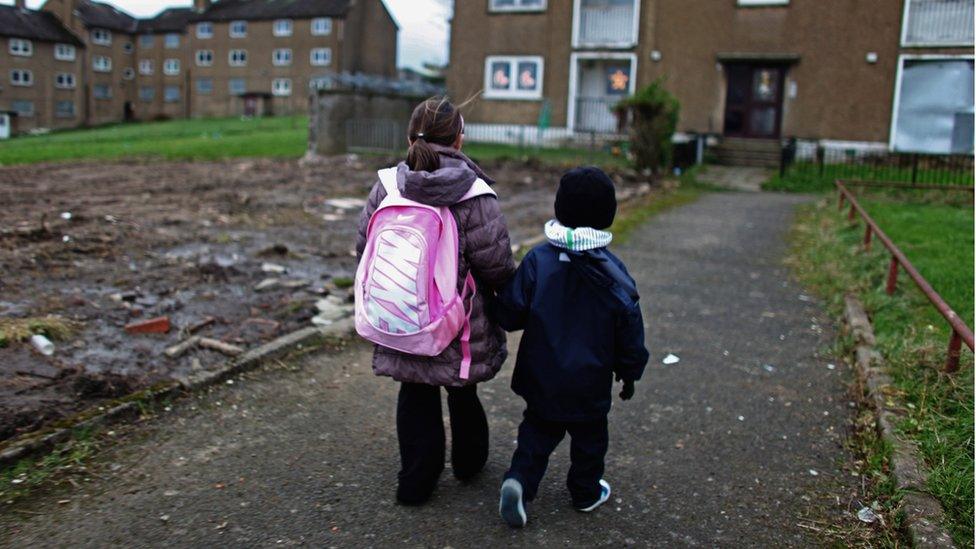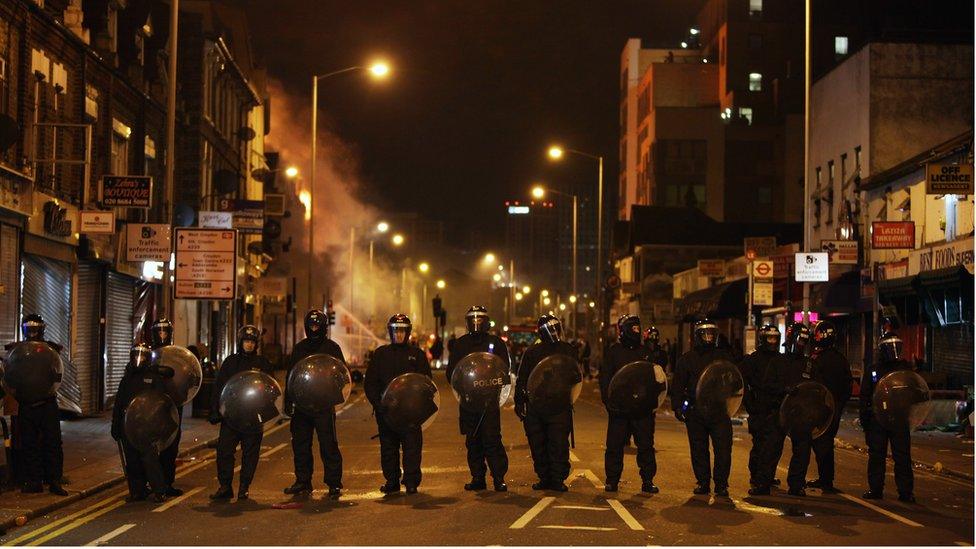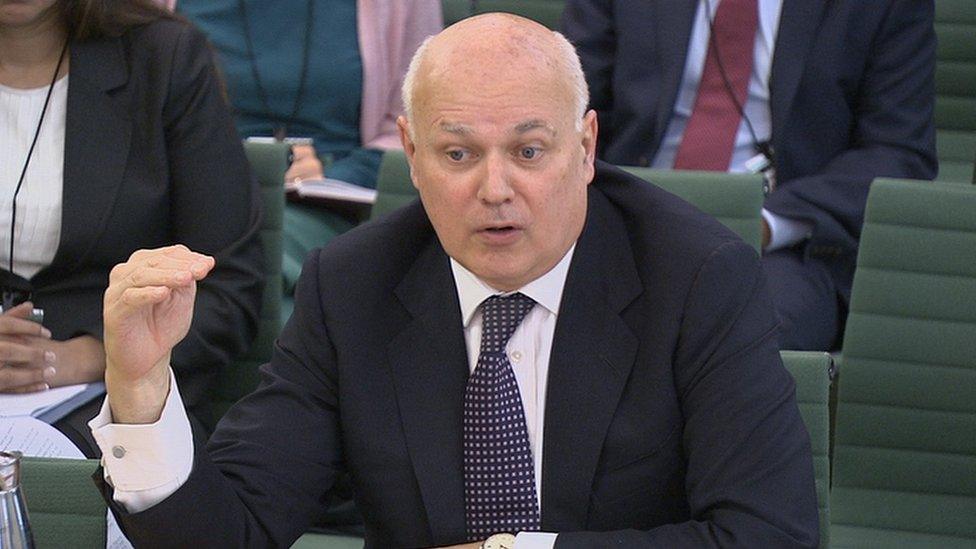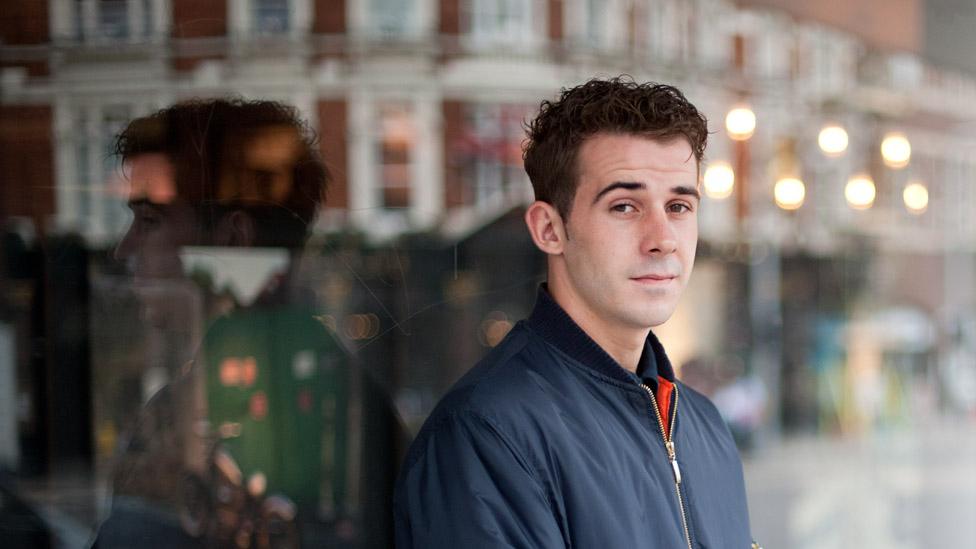Troubled Families programme gets £165m cash boost
- Published

The government's Troubled Families project is getting £165m in funding to ensure it continues for another year.
Launched by David Cameron in 2012, the scheme targets families with multiple and complex social and health issues.
Existing support for the project was due to run out later this year, prompting speculation about its future.
But Communities Secretary Robert Jenrick said it had proved a success in transforming lives and relieving the burden on public services.
The programme was set up by the Conservative-Lib Dem coalition government in response to the 2011 riots in English cities, at a cost of £448m.
It was revamped in 2015, with the aim of helping 400,000 families by 2020.
About £920m has been spent since then, averaging about £157.6m, a year, with councils being paid on the basis of their results in helping the most vulnerable families.
Anne Longfield, the Children's Commissioner for England, said the government announcement was "welcome" but needed to be followed by "long term and extended funding commitments" in this year's spending review.
Writing on Twitter,, external she highlighted the "vital" role children's centres and so-called family hubs played in the initiative.
Under the project, local authorities identify and support families in England with multiple problems, including domestic abuse, unemployment, mental health problems and truancy.
Central government funds local authorities to work with these families on a payment-by-performance basis.
In 2016, a report by the National Institute of Economic and Social Research concluded that the initiative had had no measurable effect on school attendance, employment or behaviour.
And former work and pensions secretary Iain Duncan Smith suggested last year that the scheme had become a high-profile "distraction" and some of its targets were "slightly nebulous".
But ministers said an evaluation published last April , externaldemonstrated that the programme had reduced the proportion of children going into care by a third, reduced the proportion of adults going to prison by a quarter and had cut the number of adults claiming Jobseeker's Allowance.
Their latest analysis suggests 297,733 families have "made improvements" with the problems that led to them joining the programme since 2015. In 26,848 of these families, one or more adults has moved off benefits and into work.

The scheme was set up in the wake of the 2011 riots in England
The Treasury indicated in September's Spending Review that the programme would be extended, although ministers have yet to commit to its long-term future.
Mr Jenrick said the new funding would be used to help families with inter-connected problems, including unemployment, poor school attendance, mental health issues, anti-social behaviour and domestic abuse.
"The programme will help more people in need get access to the early, practical and coordinated support to transform their lives for the better," he said.
"This is the right thing to do for families and for society as a whole, and these reforms will reduce the demand and dependency on costly, reactive key public services."
In their election manifesto, the Conservatives promised to develop "family hubs" to give vulnerable families intensive, integrated support to help care for their children, both in the early years and through to adulthood.
Mr Jenrick's predecessor, James Brokenshire, suggested last year that the Troubled Families project could potentially be renamed to ensure it is not "getting in the way of the positive objectives".
The Department for Communities said any future changes would be considered and announced in due course.
- Published23 May 2018

- Published18 October 2016
- Published4 August 2016
